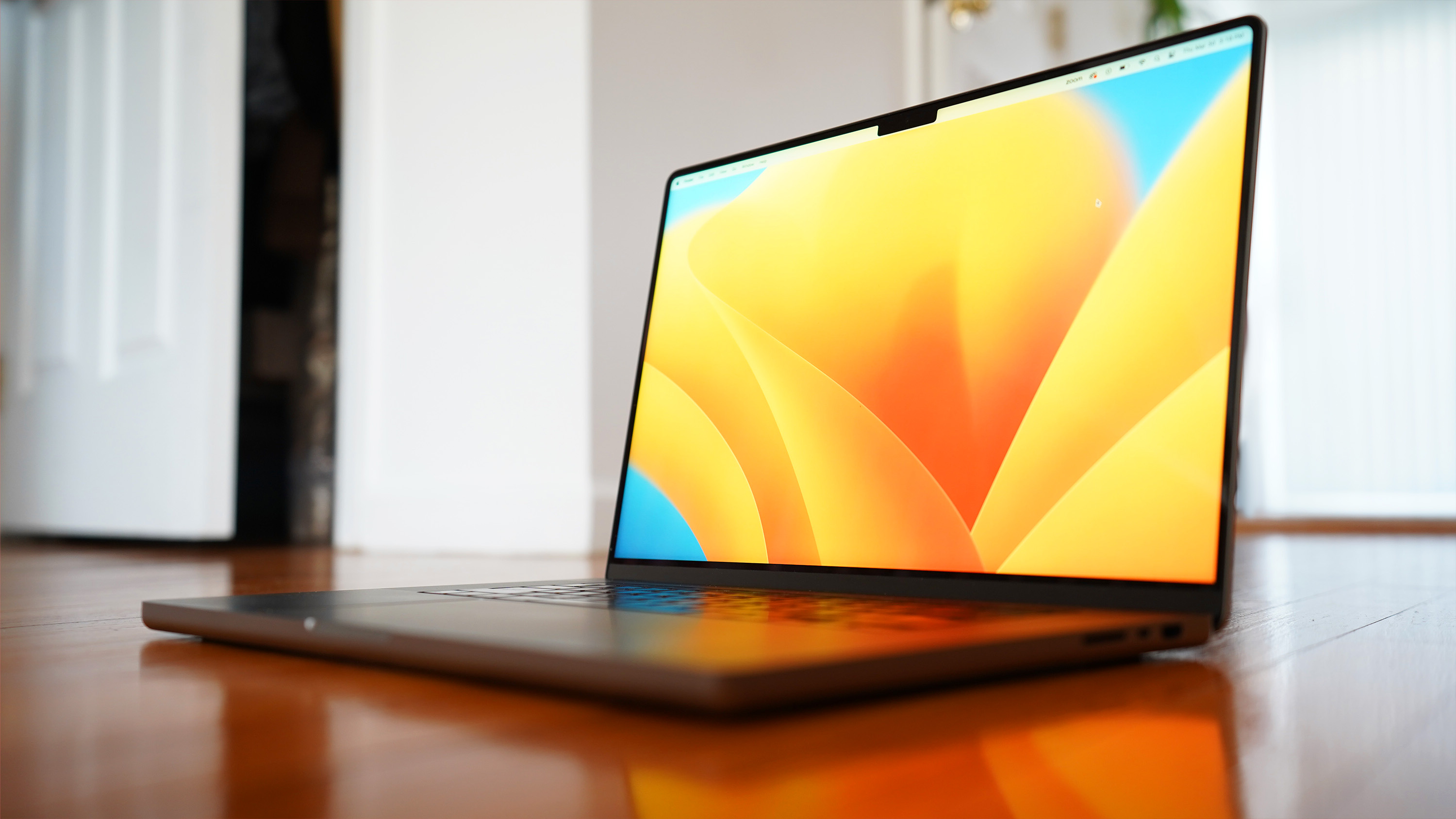'ZDNET Recommends': What exactly does it mean?
ZDNET's recommendations are based on many hours of testing, research, and comparison shopping. We gather data from the best available sources, including vendor and retailer listings as well as other relevant and independent reviews sites. And we pore over customer reviews to find out what matters to real people who already own and use the products and services we’re assessing.
When you click through from our site to a retailer and buy a product or service, we may earn affiliate commissions. This helps support our work, but does not affect what we cover or how, and it does not affect the price you pay. Neither ZDNET nor the author are compensated for these independent reviews. Indeed, we follow strict guidelines that ensure our editorial content is never influenced by advertisers.
ZDNET's editorial team writes on behalf of you, our reader. Our goal is to deliver the most accurate information and the most knowledgeable advice possible in order to help you make smarter buying decisions on tech gear and a wide array of products and services. Our editors thoroughly review and fact-check every article to ensure that our content meets the highest standards. If we have made an error or published misleading information, we will correct or clarify the article. If you see inaccuracies in our content, please report the mistake via this form.
Apple 16-inch MacBook Pro (M2 Max, 2023) review: A content creator's dream machine


Apple MacBook Pro (16-inch, M2 Max, 2023)
pros and cons
- Arguably the most performant laptop on the market
- Brilliant side speakers that get plenty loud
- Faster, more capable connectivity than M1 models
- Reliable battery life with fast charging
- Non-power users may not need such a powerful laptop
- Noticeably heavy when carrying around
- Large notch with no added functionality
Ever since Apple shifted to in-house silicon and renewed its focus on laptop hardware, even a Windows and Android user like myself -- I know, it's quite the pairing for someone who's about to review a MacBook -- has fully succumbed to the Pro line's supremacy.
That's why, I'm not going to force a 3,000-word essay on you about how well the 16-inch MacBook Pro with M2 Max runs browser tabs, streams Ted Lasso, or even handles benchmarks. If you clicked on this article, then you likely already know how the flagship Apple laptop trounces the above.
Instead, I enlisted the help of Tom Filip, a producer and editor for the sports network Overtime, and someone who falls under Apple's customer checklist for the MacBook Pro. Together, we see how the flagship laptop fares with professional content creation. Here's a summary of his experiences, including features that we both agreed Apple could do better with in the future.
Specifications
Display | 16.2-inch Liquid Retina XDR display (3,456 x 2,234, 16:10) with 120Hz |
Processor | M2 Max with 12-core CPU and 38-core GPU |
RAM/storage | Up to 96GB RAM with up to 8TB of storage |
Battery | 100Wh (Up to 22 hours of movie playback) |
Dimensions | 14.01 x 9.77 x 0.66 inches |
Weight | 4.8lbs |
Ports | 1x HDMI (2.1), 3x Thunderbolt 4, 1x SDXC card slot, 1x 3.5mm audio jack, 1x MagSafe 3 |
Connectivity | Wi-Fi 6E and Bluetooth 5.3 |
Price | Starting at $3,499 |
What's new with this model
On the surface level, much of the new MacBook Pro's hardware has been carried over from the 2021 models, including the firm and sturdy aluminum chassis, 1080p FaceTime camera notched up top, finger-grease-loving keyboard, and side-firing speakers that remain the best that I've heard on a laptop. That means budget and size preference remain the two most important factors when deciding between the 14-inch and 16-inch MacBooks.
What's changed this year mostly stems from within, including upgrades to the processor, connectivity, and battery life, as broken down below.
1. M2 Max wins where M1 was already winning
Sifting through a timeline on Premiere Pro is just as effortless as on Final Cut Pro.
Last year's MacBook Pro introduced Apple's M1 Max chip, which featured a 10-core CPU, 32-core GPU, and up to 64GB of unified memory. Considering Filip's existing work system ran on that exact silicon, the ball was in Apple's court to deliver higher performance with the upgraded M2 Max chip and its now 38-core GPU and up to 96GB of unified memory.
"My daily workflow involves editing roughly 4TB worth of footage for videos across our media channels," says Filip. "We're talking two to three of these SSDs (as he points to a stack of LaCie drives) that I need to import onto the MacBook, play through the hundreds of raw 4K clips, and compile a timeline of the very best to tell a story." All of this is done within strict deadlines, with each full-length video (about 15 minutes long) taking two to three days to piece together.
Also: How to set up your own NAS for more reliable data backups
With the M2 Max MacBook, the processes that Filip took to video editing were no different, but the speeds for real-time rendering and exporting were noticeably faster -- or so it seemed to our curious eyes.
To editors, the telltale sign of a competent machine is whether or not it can play a part in a timeline as soon as the user hovers over it, Filip tells me. (Keep in mind that there are layers upon layers of effects, graphics, and coloring that must be processed here.) Thanks to the two ProRes encode and decode engines on the MacBook Pro, the hardware-based computing makes playing back raw clips in their original quality satisfying fluid.
As for export times? We saw the M2 Max model beating out Filip's M1 Max by 20 to 30 seconds in each trial. Once you take those aforementioned deadlines into account, the quicker speeds can mean the difference between an occupied computer and moving on to thumbnails.
2. Faster, more capable connectivity across the board
Don't let the thin display fool you. The M2 Max MacBook Pro weighs nearly five pounds.
You won't notice it from the outside but the MacBook Pro this year features three enhancements to its connectivity. The first is Wi-Fi 6E (up from Wi-Fi 6), bringing a new, expanded spectrum for both faster internet speeds and lower latency.
While video editors like Philip may not stress the "faster internet" bit, being able to access the speeds in congested areas like basketball arenas and major sporting events is a game changer -- as long as those places have Wi-Fi 6E routers set up. I echoed that sentiment, having dealt with the connectivity nightmare that was CES at the Las Vegas Convention Center earlier this year.
Review: Slow home internet? This adapter turns unused coaxial cable into Ethernet
The 2023 MacBook Pro also gets a bump with the more stable Bluetooth 5.3 and more versatile HDMI 2.1. The latter of which was the most appealing upgrade to Filip, who was already extending his MacBook onto a 34-inch LG 5K monitor, but has long considered kicking it to an 8K display for future-proofing. If and when that happens -- we both chuckle at the idea of pixels we can't even fully conceptualize on a desktop screen -- the Apple laptop will be more than able of supporting the higher resolution.
3. Battery life that impresses everyone
The MacBook deck retains the dual firing speakers and force touch trackpad.
Remember the 38-core GPU that I mentioned earlier? Part of its lift involves upping the MacBook Pro's battery life by an hour compared to the M1-equipped predecessors. In practice, the improved efficiency was as negligible as the stat makes it out to be, but something both Philips and I came to appreciate nonetheless.
Also: The best laptops for every type of user and budget
When deciding between the M2 Pro and M2 Max variants, users should note that while the latter is more powerful, it comes at the cost of an hour or two of endurance. Despite that, you're looking at roughly 14 hours of battery life on the M2 Pro versus 12 hours on the M2 Max, which is promising no matter which of the two you end up buying.
What we'd like to see in the next model
For the work that both Filip and I do, there's not much to complain about with the M2 Max, 16-inch MacBook Pro -- performance-wise, at least. The laptop starts at $3,499, which I'll applaud Apple for retaining the 2021's M1 Max price tag. Considering the price, here are two nitpicks that would make the larger MacBook experience even better.
1. A lighter form factor
Imagine a large-screen laptop that doesn't feel like a dumbbell.
Even if the MacBook Pro is your first experience with a 16-inch laptop, you'll quickly notice just chunky the thing is. As someone who's gotten used to carrying the MacBook along with a full-frame camera for work, I cannot fathom just how relieving my back feels when I'm testing a different, smaller laptop.
Part of the reason for the heavier hand feel in general is the MacBook Pro's boxier design language. Compared to the Samsung Galaxy Book 3 Ultra, another 16-incher I recently tested that has curved edges sloping across the chassis, the sharp-edged MacBook requires a firm grasp when carrying it around.
Review: Galaxy Book 3 Ultra: The laptop Samsung fans have been waiting for
That's why, if you're switching over to a 2023 MacBook Pro and don't require a maxed-out workstation, I'd heavily consider the 14-inch model. It's just as snappy, has the same ports, and is more fit for travel.
2. A notch that does more
Same notch. Same camera quality and sensors.
I never had an issue with Apple adopting its iPhone notch design onto its MacBook line. For a near-bezeless appearance, the bit of black space was negligible. The problem I have with the new MacBook Pro's notch is that Apple didn't make it any better. There's no depth sensing for facial recognition to unlock (which other manufacturers have achieved with laptop lids that are just as thin) or a sharper camera sensor. There's no added functionality, period.
In future models, I'd love to see the company either shrink the notch so it's not as obtrusive or even replace it with a camera element that doubles as a live activity widget! It can be called Dynamic Island.
Bottom line
The latest MacBook Pro is a testament to Apple's golden age of mobile computing. While most of the innovating happened with the now two-year-old, M1 MacBook Pros, the M2 variants absolutely deliver where it matters to both Filip's (thanks again, Tom!) and my workflows while offering a more future-proof system.
Reviewing the M2 Max MacBook Pro side-by-side with its predecessor also demonstrated just how capable the latter was. To fall only seconds behind when it came to processing and exporting footage, the M1-powered machines should still be considered for shoppers who want a great-value MacBook.
Should I buy one?
That's why if you already have an M1-powered MacBook Pro, keep it. If you're upgrading from anything older, I suggest you buy this. At a starting price of $3,499, the 16-inch, M2 Max MacBook Pro is no impulse purchase. But if you need a laptop that can power through pro-grade apps and services as efficiently as possible, with some Apple perks on the side like iPhone syncing, a magical force-touch trackpad, and the company's reputable after-sales service, then I can't recommend anything better.